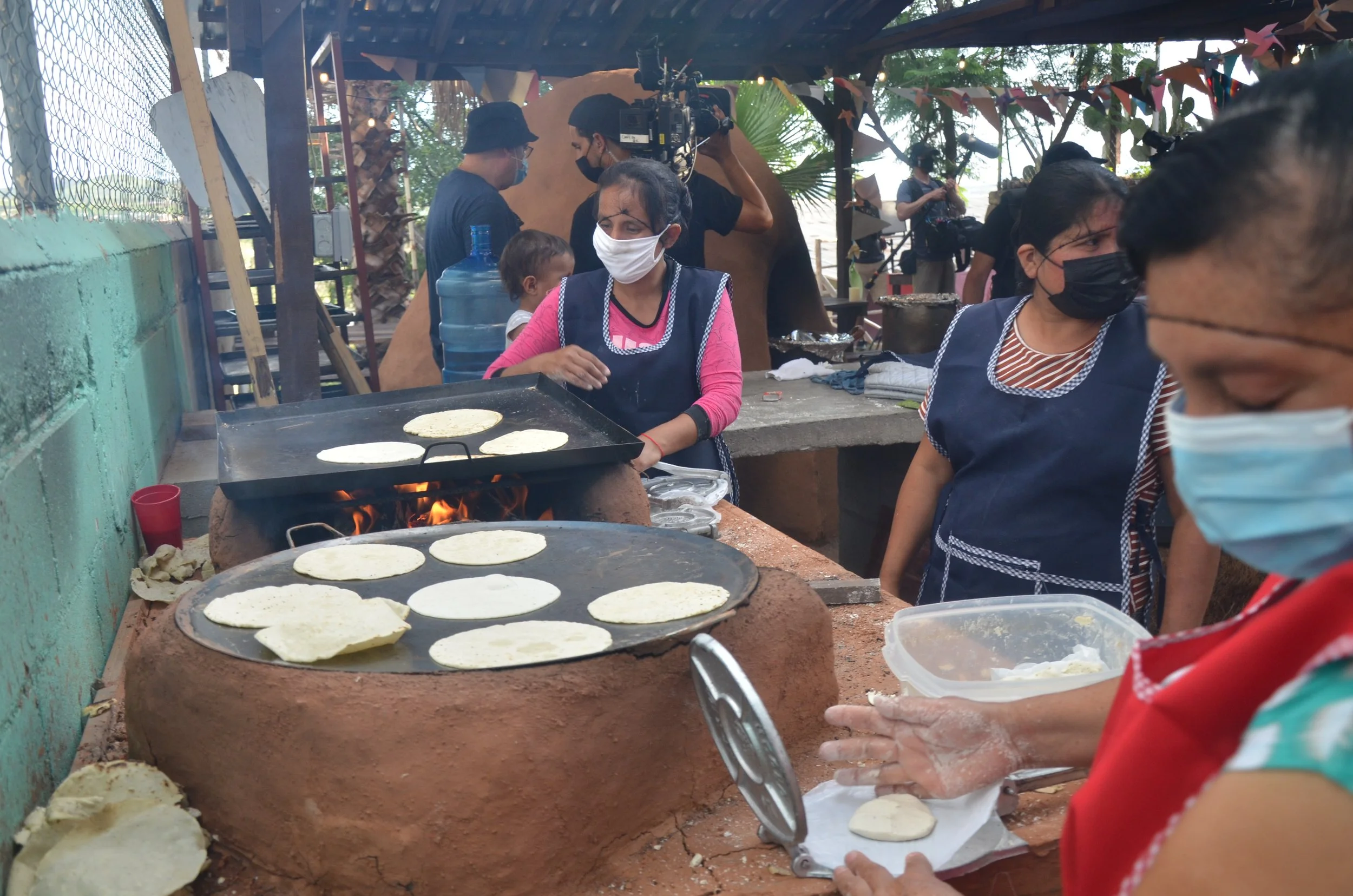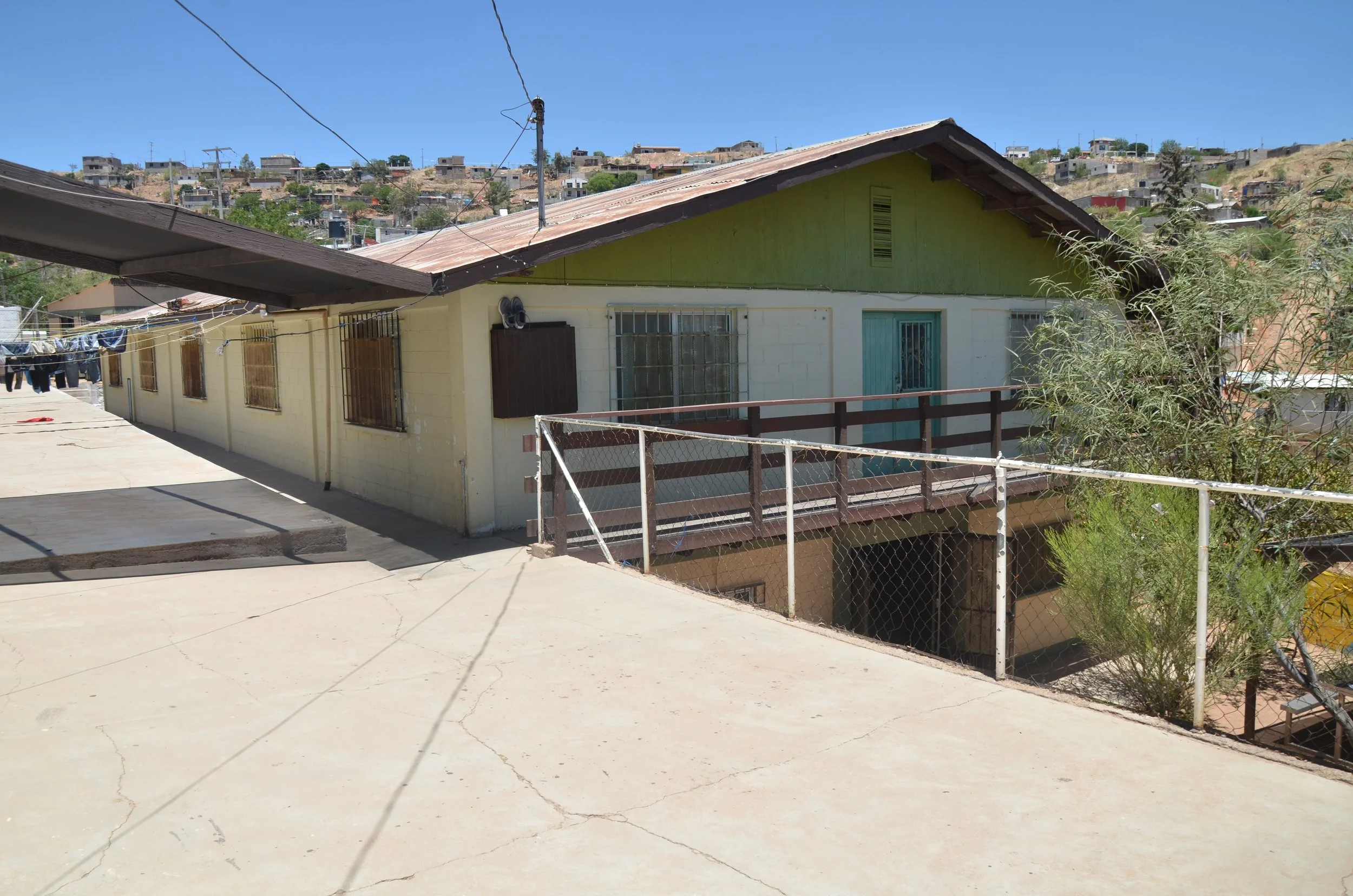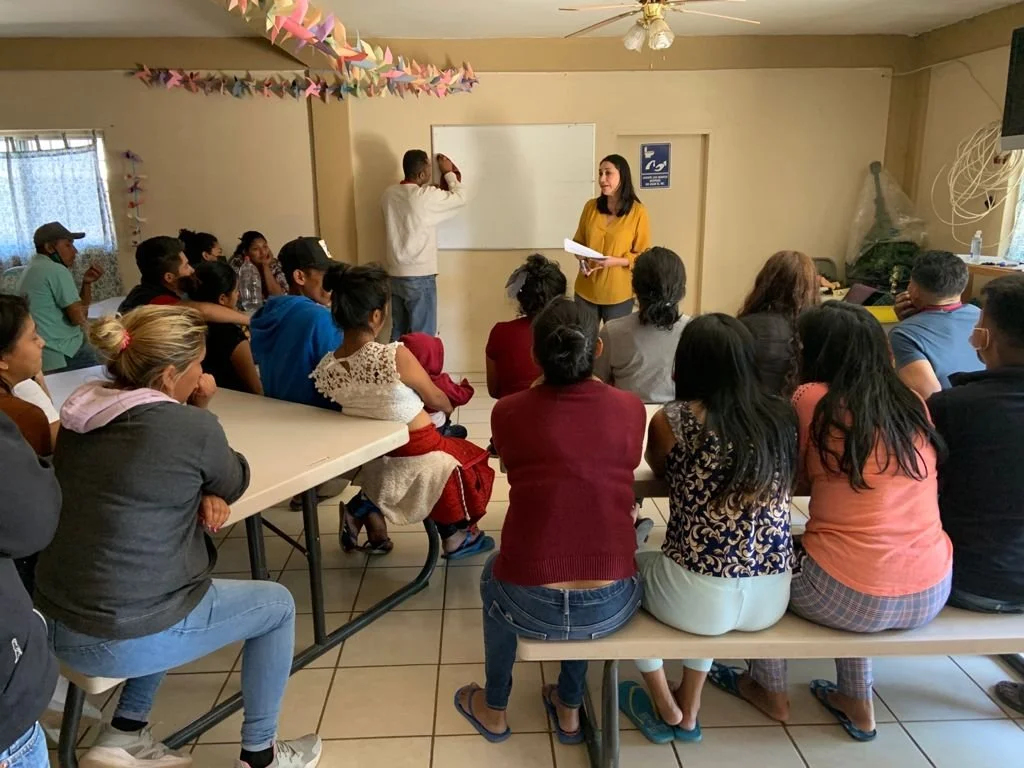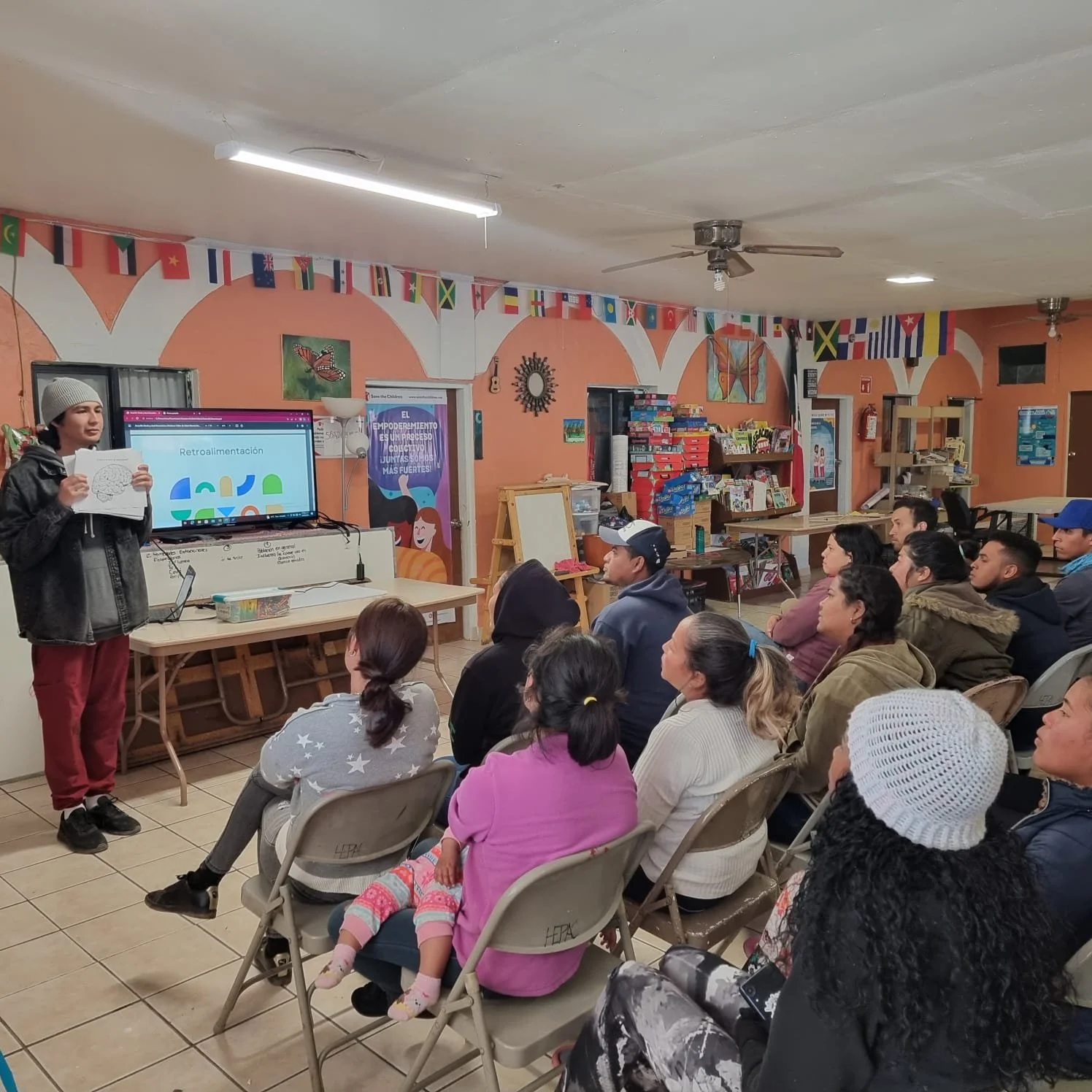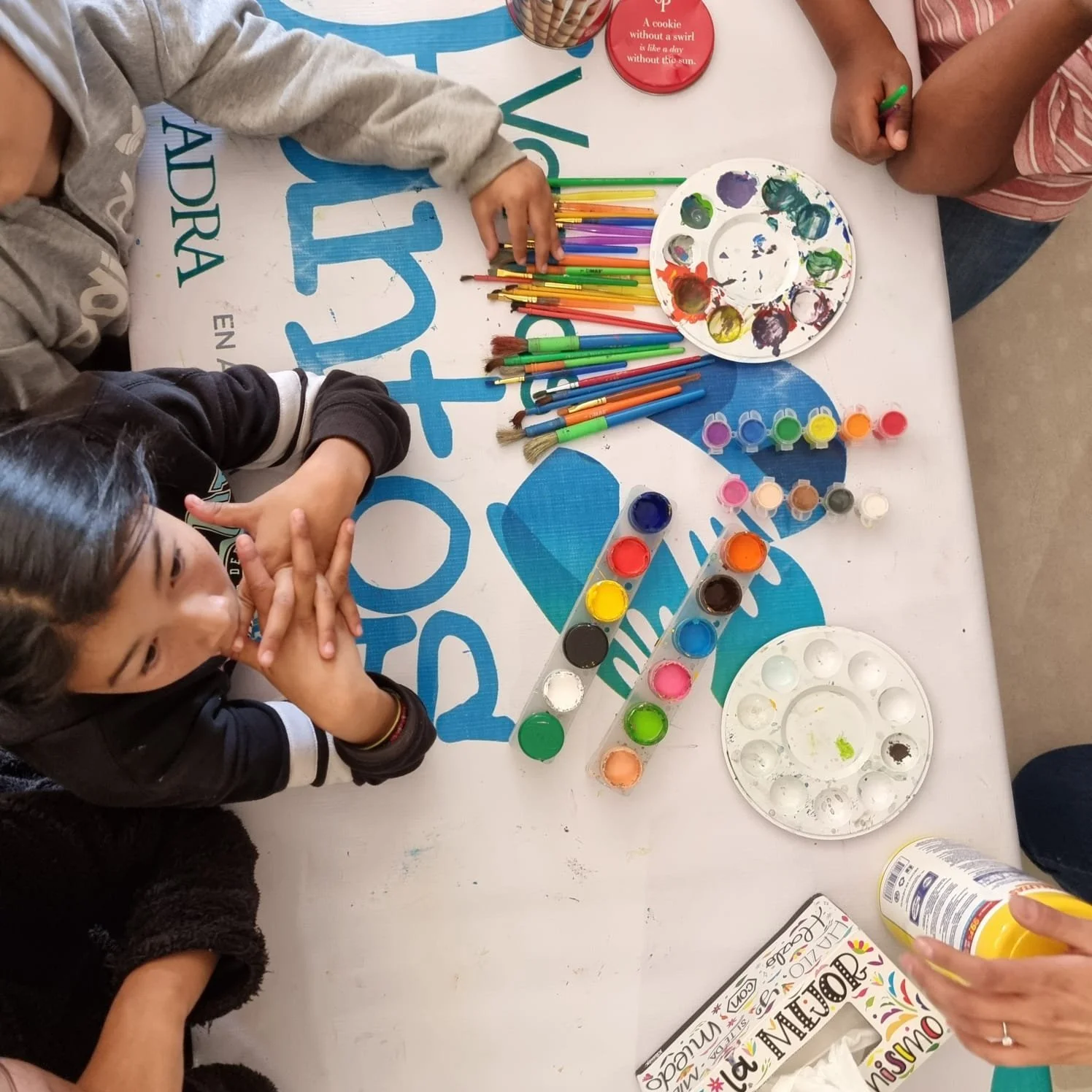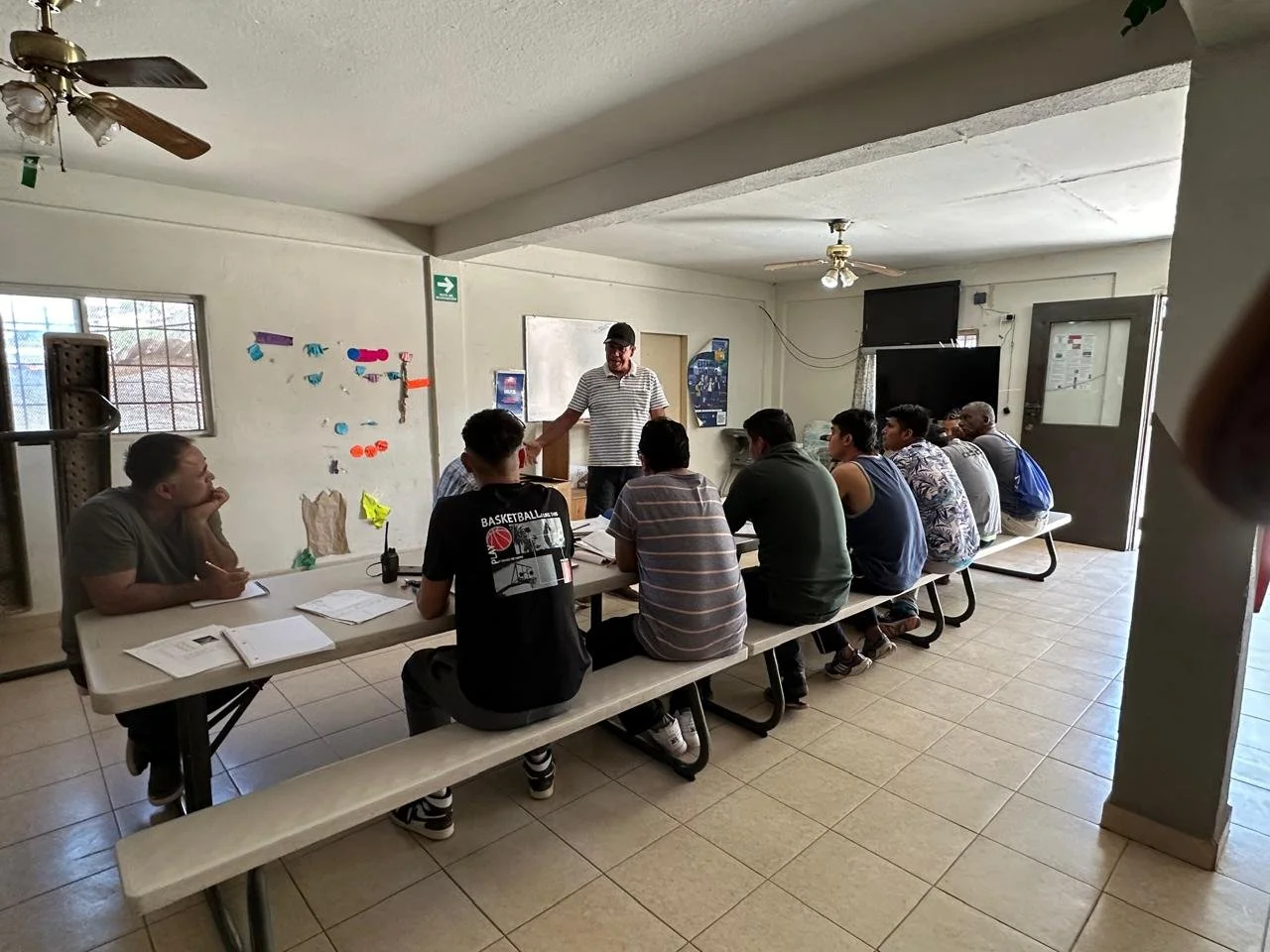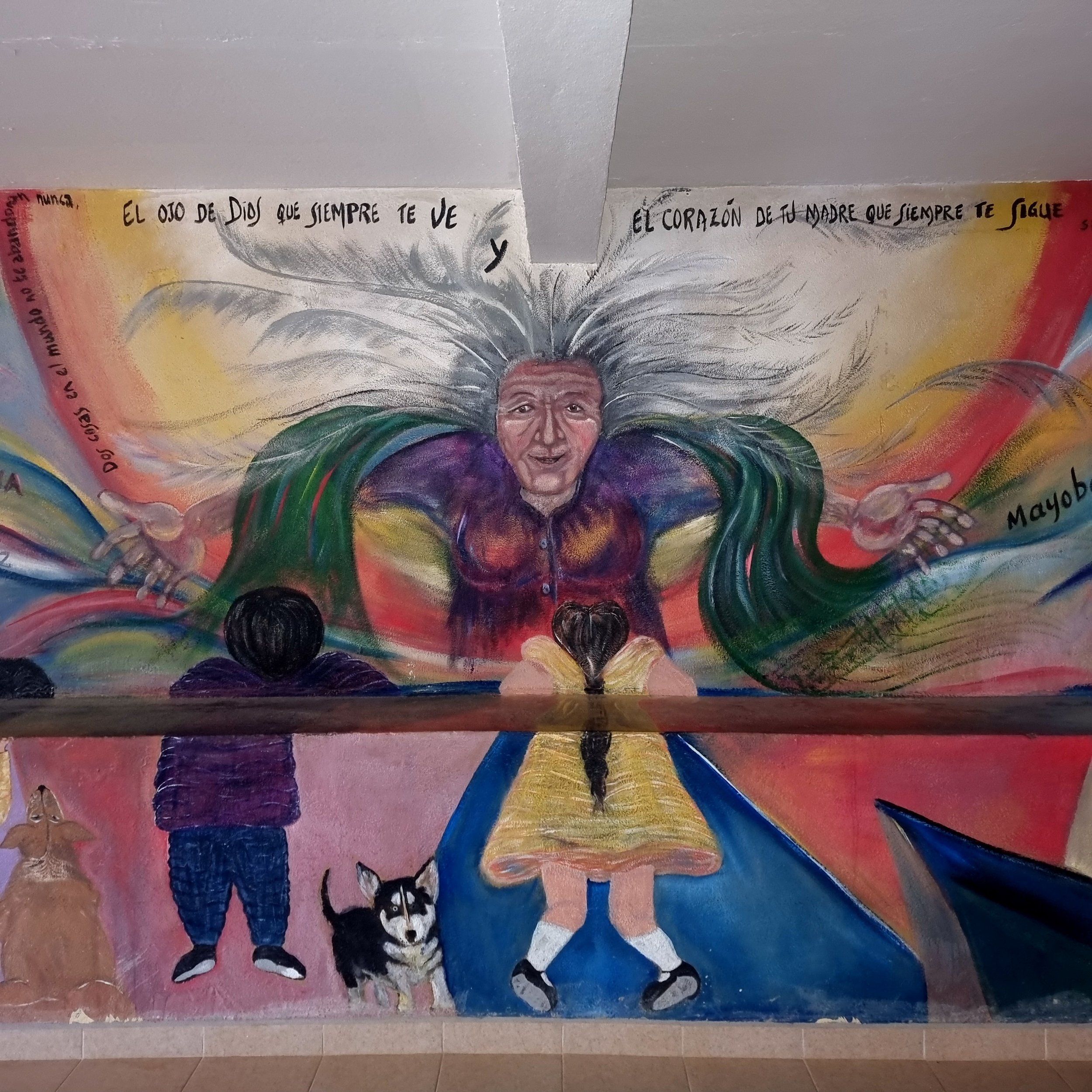
WHAT DO WE DO?
We aim to enhance the welfare of the community by managing a safe, warm, and human rights-oriented space.
Beneficiaries of the shelter receive the following services free of charge during their stay:
Our projects
Oven:
Every Saturday morning, children, teenagers and adults gather around this space to bake bread and pizza, encouraging community activities with a common goal.
Sometimes people use the fire to cook food or make corn tortillas by hand.
Organic orchard:
We receive people from different places with different qualities and qualifications, among them are people who love planting and harvesting.
Embroiderers of Hope:
In coordination with Artisans Beyond Borders, a sewing workshop was set up within the shelter, which allows children, adolescents, and adults to express their experiences and emotions in a blanket, or work of embroidery. This allows them to have an income whenever they have a piece of work to sell.
Tortilla factory:
The objective of this space is to provide a nutritious and quality product to our community and to the communities around the shelter, as well as to provide a dignified and responsible workspace for our population.
Our vision for this space is to foster connection between the neighborhood and the community.
Ukelele Workshop:
One of our most recent projects is the Ukulele Workshop, which promotes practical technical training for people in vulnerable situations. Through community collaboration, we aim to offer opportunities that contribute to well-being within the community itself, fostering responsibility, commitment, and teamwork, as well as the habit of saving for their future.
Art is an essential part of the artisans' work, who imbue each ukulele with memories, stories, and experiences marked by often involuntary migration. Thus, art and music become a means for them to share their hopes for a prosperous and hopeful future for their children.


